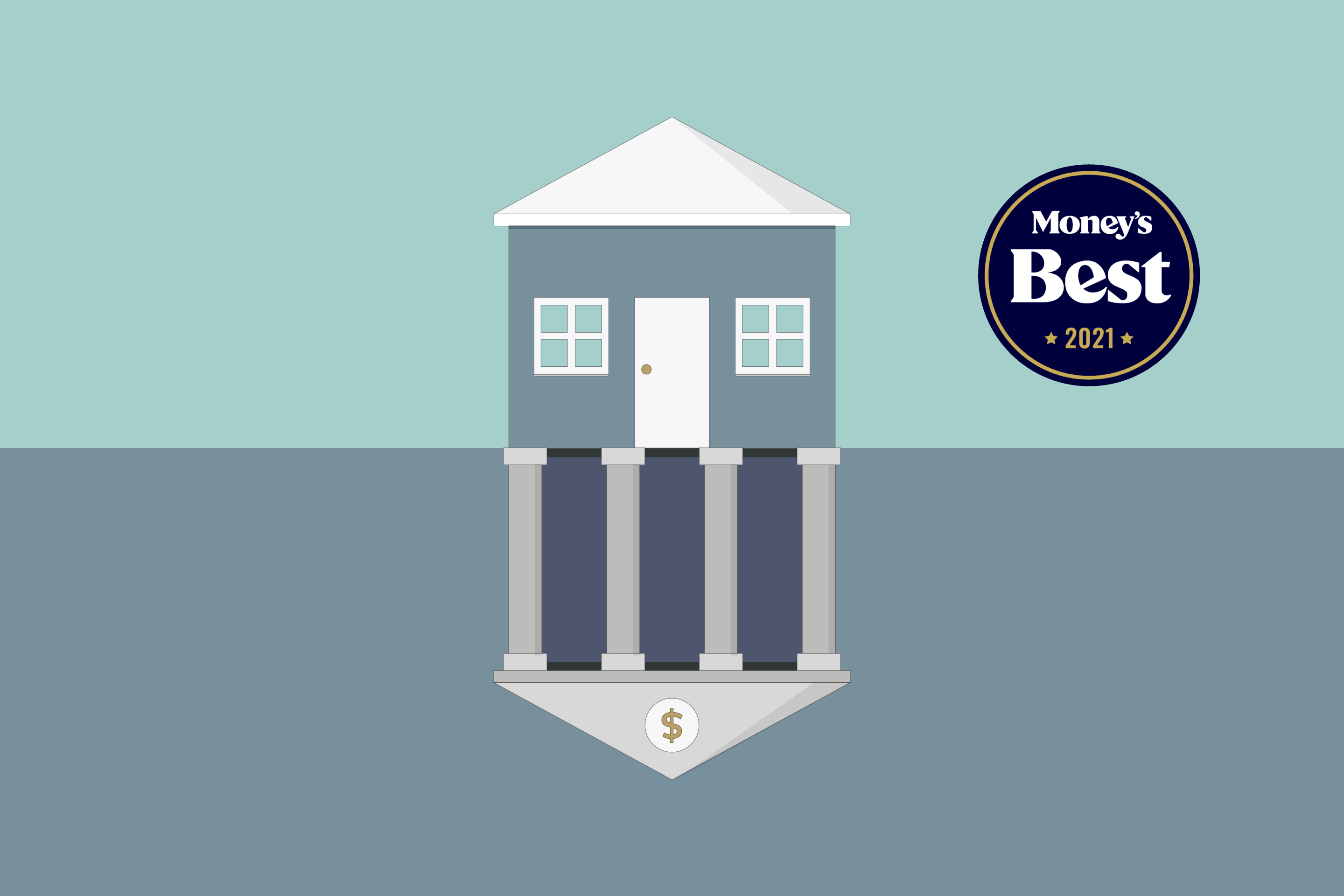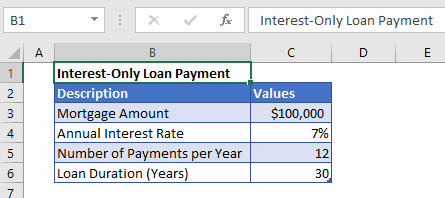Retirees who are depending on utilizing their home equity to assist fund shift to assisted living; those who wish to keep their house in the household or protect their inheritance for their heirs. Customers currently paying above-market interest rates; borrowers who wish to shorten their loan term; customers who wish to replace an ARM with a more foreseeable fixed-rate; debtors facing a balloon payment.
House owners seeking a house equity loan who would also gain from refinancing their present mortgage. Property owners looking for a home equity loan who would gain little or no cost savings from refinancing their current home mortgage. Underwater debtors or those with less than 20 percent home equity; those looking for to re-finance at a lower rates of interest; borrowers with an ARM or upcoming balloon payment who want to convert to a fixed-rate loan.
Newbie property buyers, purchasers who can not install a large down payment, borrowers acquiring a low- to mid-priced house, purchasers seeking to buy and improve a home with a single home loan (203k program). Debtors purchasing a high-end house; those able to set up a deposit of 10 percent or more.
Non-veterans; veterans and active service members who have tired their basic entitlement or who are looking to buy investment residential or commercial property. First-time buyers with young households; those currently residing in congested or out-of-date housing; residents of rural locations or small neighborhoods; those with restricted earnings Urban residents, households with above-median earnings; bachelors or couples without children.
Among the very first questions you are bound to ask yourself when you desire to purchase a home is, "which home loan is ideal for me?" Generally, purchase and refinance loans are divided into fixed-rate or adjustable-rate home loans. When you select fixed or adjustable, you will also require to consider the loan term.
Long-lasting fixed-rate home mortgages are the staple of the American home mortgage market. With a fixed rate and a fixed regular monthly payment, these loans supply the most steady and foreseeable cost of homeownership. This makes fixed-rate home loans popular for homebuyers (and refinancers), particularly at times when rate of interest are low - what lenders give mortgages after bankruptcy. The most typical term for a fixed-rate home mortgage is thirty years, however shorter-terms of 20, 15 and even 10 years are likewise readily available.
What Do I Need To Know About Mortgages And Rates Fundamentals Explained
Since a greater month-to-month payment limits the amount of home mortgage a provided income can support, a lot of homebuyers decide to spread their monthly payments out over a 30-year term. Some home mortgage loan providers will permit you to personalize your home mortgage term to be whatever length you desire it to be by adjusting the month-to-month payments.

Given that month-to-month payments can both fluctuate, ARMs carry threats that fixed-rate loans do not. ARMs are useful for some debtors-- even first time borrowers-- but do require some extra understanding and diligence on the part of the consumer. There are knowable dangers, and some can be handled with a little preparation.
Conventional ARMs trade long-lasting stability for routine changes in your rate of interest and monthly payment. This timeshare foreclosure maintenance fees can work to your benefit or downside. Conventional ARMs have rates of interest that adjust every year, every three years or every 5 years. You might hear these referred to as "1/1," "3/3" or " 5/5" ARMs.
For example, preliminary rate of interest in a 5/5 ARM is fixed for the first five years. After that, the rate of interest resets to a new rate every 5 years till the loan reaches completion of its 30-year term. Standard ARMs are generally used at a lower preliminary rate than fixed-rate home loans, and generally have payment terms of thirty years.

Of course, the reverse holds true, and you might wind up with a higher rate, making your mortgage less economical in the future. Keep in mind: Not all loan providers offer these items. Standard ARMs are more beneficial to property buyers when rate of interest are relatively high, considering that they provide the possibility at lower rates in the future.
Like standard ARMs, these are normally readily available at lower rates than fixed-rate mortgages and have overall repayment terms of thirty years. Due to the fact that they have a variety of fixed-rate periods, Hybrid ARMs offer customers a lower preliminary rate of interest and a fixed-rate home mortgage that fits their expected timespan. That said, these products carry risks considering that a low fixed rate (for a couple of years) might come to an end in the middle of a higher-rate climate, and month-to-month payments can jump.
About How Much Is Mortgage Tax In Nyc For Mortgages Over 500000:oo
Although often gone over as though it is one, FHA isn't a mortgage. It stands for the Federal Real Estate Administration, a federal government entity which essentially runs an insurance pool supported by charges that FHA home mortgage customers pay. This insurance coverage swimming pool virtually removes the danger of loss to a lender, so FHA-backed loans can be used to riskier borrowers, particularly those with lower credit history and smaller deposits.
Popular among newbie homebuyers, the 30-year fixed-rate FHA-backed loan is available at rates even lower than more standard "adhering" home mortgages, even in cases where customers have weak credit. While deposit requirements of as low as 3. 5 percent make them specifically attractive, debtors should pay an upfront and annual premium to money the insurance coverage swimming pool noted above.
To find out more about FHA mortgages, check out "Benefits of FHA home mortgages." VA house loans are home mortgages guaranteed by the U.S. Department of Veterans Affairs (VA). These loans, problems by private lending institutions, are used to eligible servicemembers and their households at lower rates and at more beneficial terms. To determine if you are qualified and to discover more about these mortgages, visit our VA home loans page.
Fannie Mae and Freddie Mac have limits on the size of home loans they can purchase from lending institutions; in a lot of locations this cap is $510,400 (approximately $765,600 in certain "high-cost" markets). Jumbo home mortgages can be found in fixed and adjustable (standard and hybrid) chuck mcdowell ranges. Under policies enforced by Dodd-Frank legislation, a definition for a so-called Qualified Home loan was set.
QMs likewise allow for customer debt-to-income level of 43% or less, and can be backed by Fannie Mae and Freddie Mac. Presently, Fannie Mae and Freddie Mac are using special "short-term" exemptions from QM guidelines to purchase or back mortgages with DTI ratios as high as 50% in some scenarios.
Non-QM mortgages might be offered by lending institutions, who typically put them in their "portfolio" of loans they hold. For the most part, they are made only to the finest qualify debtors or those who have strong risk-offsetting financial attributes, such as a big deposit or really high levels of assets.
How Is Freddie Mac Being Hels Responsible For Underwater Mortgages - An Overview
I discovered myself all of a sudden home shopping this month (long story), and even for someone who operates in the monetary market, there were lots of terms I was unfamiliar with. One of the most complicated steps in the home buying procedure was understanding the different kinds of mortgages readily available. After a lot of late night spent researching the various types of home loans offered, I was finally about to make my option, however I'll save that for completion.